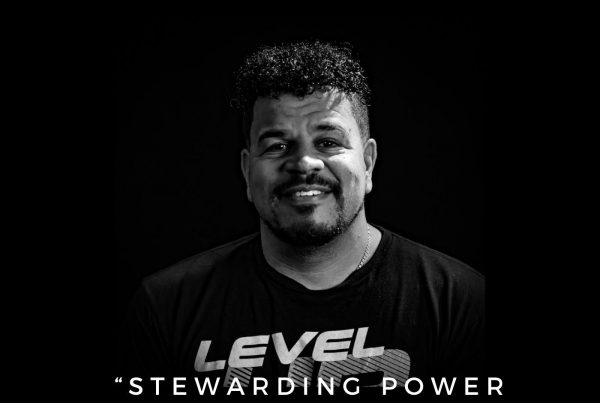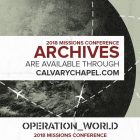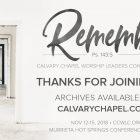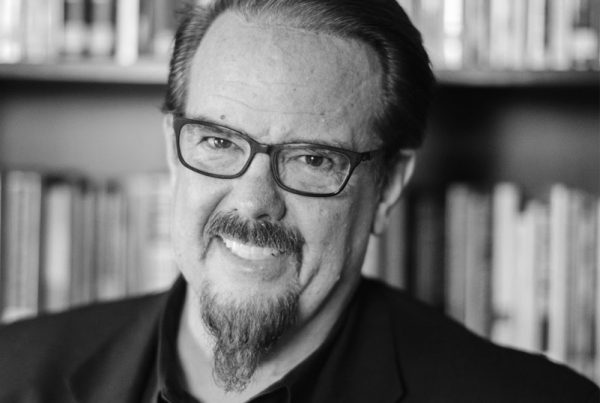About
Navigating theological differences in gospel partnerships can be difficult. We’re trying to partner with others for the Gospel, both within our particular evangelical subdivisions, but also with those from without. Sometimes we get asked to partner in things that are of a justice or moral realm, even with non-Christians. A great deal of confusion can ensue, as we think about these kinds of things.
What’s the best action to take? Who do we present ourselves alongside? What lines do we draw? What lines do we not draw? Professor Gerry Breshears gives a helpful paradigm for navigating these kinds of decisions
Audio Only
Transcript
Kellen: All right, Dr. Gerry. Thank you for being part of our Exclusive Content Package.
All right. So we’re going to get into something that’s, you know, your favorite kind of topic, I think: “controversy.” *both laughing*
Gerry: I’m an eight on enneagram, yeah, I love conflict.
Kellen: So our theme for this discussion and this teaching is “Navigating Theological Differences in Gospel Partnerships,” specifically.
We’ll talk a little bit broader as well, I think, as we go through. I know you’ve got some helpful slides prepared today. So, navigating theological differences in gospel partnerships, we’re trying to partner with others for the gospel, and both within our particular evangelical subdivisions, but also with those from without. And sometimes we even get asked to partner in things that are of a justice or moral realm, even with non-Christians. And so, lots of, lots of confusion can ensue as we think about these kinds of things. What’s the best action to take.
Who do we present ourselves alongside? What lines do we draw? What lines do we not draw? And as a student of yours, and as a friend, I’ve been able to listen to you talk about what I think is a helpful paradigm for navigating these kinds of decisions. And I don’t know what you call it.
I called it your four D paradigm for navigating theological differences.
Gerry: I’ll take that.
Kellen: Great. That’ll be in the next book, right. And I’ll, I’ll have a footnote in there.
Gerry: Totally, a very small footnote. *Both laughing*
Kellen: That’s right. Okay, so Gerry, if you wouldn’t mind just jumping in; maybe you could just start walking us through this paradigm you use, and we can have some fun conversation along the way.
Gerry: Yeah, so when I talk about this, what I want to talk about…the four D’s, I term it “level of essentiality” or level of certainty,” something like that. What things are essential to our faith; what things are essential to our practice, and the four D’s: D. Walker, a friend of mine of Redeemers Roseburg, took my four things and said, you have to have alliteration cause you’ve got to be a better preacher.
So I made, he suggested four D’s. So, top level here is the “die for.” And when we’re talking about this, this is highest level of essentiality. We’re talking about things that the Bible is really clear about. These are biblical essentials. And so, this is something where the Bible speaks clearly. It’s not a matter of interpretation.
It’s not a writer of ambiguity. It’s not a matter of doctoral developments. It’s Bible speaking really clear. And when I push this to deny these things knowingly is to deny Christ. They’re so central. So, of course the question is, “Like what?” Well, one that’s really important these days is the inspiration and authority of the Bible, because I’m seeing more and more people moving the Bible to being just a book of ancient wisdom we can pick and choose from.
But we’ve learned a lot since then, so anything that doesn’t agree with our “current standards,” well, does no good. And I think that’s a serious, serious problem. The Bible as a whole is God’s word. The Trinity, that somehow God is inherently relational in personal distinctions that can love and interact each other.
And this is opposed to, “God is impersonal,” or that there are three gods or many gods. Jesus, Emmanuel, “Lord with us,” that, “He is Lord.” I mean, these are not ambiguous things; they are very clear. The substitutionary death and bodily resurrection of Christ, that somehow his death is a payment for my sin and allows me to be a child of God is essential.
Now there are more than these things in atonement, but these are foundational things. And I see all of these really under attack within evangelicalism. And these are the things that lead into losing the essentials of the gospel. So I want to put these things as foundational truths, and you believe all these, Kellen?
I’m just checking here.
Kellen: I do. I do. I appreciate you giving me an opportunity to state my orthodox pedigree. *laughs*
Can I ask you a question though? I’m just looking at some of the lists. Maybe you could elaborate. So, on “C”, it says, “To deny these knowingly is to deny Christ.” And so I’m looking at something like the inspiration and authority of the Bible, which I believe in whole; you believe in whole. But I guess my question is: Are you saying that, if I knowingly deny that scripture is inerrant or just the authority of it as kind of a metanarrative over all perspectives; does that equate to a denial of Jesus; or does it lead to a denial of Jesus, ultimately? Can you walk me through that a little bit?
Gerry: Yeah, well, you know that I didn’t put inerrancy in this list.
Kellen: I did notice that as soon as it came out of my mouth, I said, “You know, he didn’t put in there.”
Gerry: I didn’t put it in the list because I don’t think that’s a “die for.”
Kellen: Okay
Gerry: I think people can say they’re mistakes in the Bible. Of course, the level of mistake is crucial.
And I believe people can think that the Bible… it depends, so in other words, what you’re talking about by “mistake” or “error” is…
Kellen: The copy is “discrepancy,” versus, “Are we saying the Bible said something that’s just not true?”
Gerry: Yup. And so, “inspiration:” This is what God wants to say to his church of all times at all ages.
And then what God says, is authoritative in my life. And that’s where, for example, in some of the current distinctions about gender issues and sexuality issues, there are a lot of people saying,” Well, we’re supposed to love each other. So, of course, we love and get into places where we deny the biblical definition of marriage.
For example, one man, one woman, husband, wife for life. And when you start denying what Jesus teaches clearly, you’re denying the authority of scripture. And then you end up denying Jesus himself, I would say, but this is where you have to listen to people like, “What’s going on?” “Why are they denying this?”
And that’s why I say to deny “knowingly,” this is what happens when, “Well, we don’t want to be so intolerant,” or words like that. And you end up denying God’s authority in my life expressed through scripture.
Kellen: Gotcha. Okay. That’s helpful clarification.
Gerry: So that’s the “die for” levels.
“Divide for,” is a different level. “Divide for” is: Issues that are so central, that who we strongly disagree with, we can’t be in the same fellowship. So that would be like in the same church, or in my case, in the same seminary or in the same association.
My background is Baptist. We’re famous for dividing over everything. One of these, of course, is sacraments divided, like Luther and Calvin, their division came fundament over the nature of the Eucharist.
And these are so central, that we say, yeah, you’re Christian. I totally believe we will have to live next door to each other in heaven. But right now, we just can’t do this. And the thing is this differentiation is sort of thing that happens between Saul and Barnabas in Acts 15.
Where they disagree over whether to take John Mark with them on a second journey, or to leave him at home to be a pastor. It’s not they disagree on his character. It’s not they disagree on, you know, it’s not all being a – blankety, blank – hard-nosed intolerant. Barnabas isn’t loving. It’s not that at all. They’re thinking, “What do we do with this man?”
And they end up dividing over that. And so there’s places biblically where it describes that. It’s something we regret, I think, but it’s also something that happens.
Kellen: Can I ask, so I’m looking at the statement here on, on letter, ” A:” “issues so central that we cannot be in the same fellowship.”
So maybe you could elaborate on that because I’m thinking about, what I think you’re getting at, and I’ll let you clarify, is that consistent, committed kind of membership at the local church level …
Gerry: Or associations of churches.
A historic example of this. If you go back a century, you have the Baptist divided over the issue of slavery, and the Presbyterians divided over the issue of slavery.
So you’ve got Southern Baptist and Northern Baptist. You had Southern Presbyterian and Northern Presbyterian, and they were dividing over where they stood on slavery. And it was so central and had divided fellowship over those kinds of things.
Kellen: And that’s good, I think. And that’s the distinction that I’m kind of aiming to clarify a little bit, because some might hear this, and they might read it, and they might miss those words the same in that sentence. And they might read, “So central, we can’t be in fellowship period.” And so I’m thinking about even looking at this sacraments, and I’m thinking of friends that I made in my time at Western Seminary who are Presbyterians.
Who have a different view of baptism than I do in some ways. And we can have fellowship. We can go to Stumptown Coffee and be friends and hang out and discuss and kind of,” debate for,” maybe we’ll get there in a minute, but would we be able to, with a clean conscience, beyond the same church leadership team with differences at that level.
And so is that kind of what you’re getting at?
Gerry: Yup. Yup. And so same fellowship would be in the same church. It could be in the same seminary. When I first came to Western, prior to when I came, anybody who was a continuationist could not teach at Western Seminary. If I believe God continues to speak on scripture today, and I do believe that, back in the 70s, I would not have been hired at Western. They’re strictly a cessationist school. That’s changed, and that is not a “divide for” now. And I don’t think it shouldn’t be a “divide for;” we’ve got cessationists and continuationists in our faculty and for sure in our students.
So that’s something where “divide for” that used to be a “divide for” isn’t. And we’ve also at Western clarified some things that we have “divide for” now that were not an issue 40 years ago, same thing in churches. So we’ve spoken to issues of gender, for example, that wasn’t even an issue a decade ago, but now we have to take a clarification point on that because new issues come up.
Kellen: Yeah. Great. So ” divide for,” what do we got next?
Gerry: I wanted ask you what you’re going to put on this list as the Director of Calvary Global Network. I mean, I know a couple of things I’d put on it as a pastor at Grace Community Church.
Kellen: Yeah. So, I guess it, again comes back to that “what I’m representing idea,” you know, so, me as just a Christian, I can be friends with all kinds of people, but if you’re talking about leadership, talking about the churches that might formally be a part of Calvary Global Network in itself. Yeah, we were on the journey. I think that similar to the one that Western has probably been through, according to what you’re describing there, where we’re, really thinking a lot and praying about these different kinds of lines as a network and trying to center things back on probably the “die for” categories, as much as we can, you know, that idea of gospel centrality. What are the things that really threaten the integrity of our gospel and our kind of holistic belief and picture of Jesus. And making those the prominent points.
And yet, recognizing that there are still, I guess, nonessential, but still very important doctrines that would probably go into this category, or pieces of philosophy of ministry, that we just feel differences around those have a significant enough implication that we still, while we wouldn’t say they are central to the faith or that salvation or justification depends on them, they’re still important enough for us to say, “These are practices or beliefs that we really want to be committed to and share commitment to as a group of churches.” And so. In that sense, we wouldn’t see them as qualifying one for inclusion in the kingdom of God, but it wouldn’t disqualify one from formal participation as a representative church of Calvary Global Network.
So for us, you bring up continuationism, the idea or the question: Are all the gifts of the Holy Spirit mentioned in scripture available to you and important for the church today? That’s an area where we would say, “Yeah, you can have a difference of opinion on that and your salvation isn’t in question,” you know, your relationship to Jesus isn’t necessarily in question in the justification sense and all of that.
But for us, that’s an area where we would say that we do uniformly believe the gifts are for the church and important for the church today. And we believe that not believing that has enough significant implications and ramifications for the life and ministry of the church. That that’s something we’re willing to say, you know, it’s not essential, but it is something that we want to have unified commitment to, and that we want to advocate as a healthy belief and practice for the truth. So, yeah, that would be one. one of the more important ones, another one for us is complimentarian relationships. And, and you know, the idea that all men and women are equal in dignity, value and worth, created equal.
They’re all made in the image of God and that we have, important and unique roles to play that are essential in both the church and the home. Even there though, we have a kind of a baseline perspective. And then, but we want to encourage discussion and flexibility led by the local church leaders in a wide spectrum of applications of that baseline belief.
So anyway, I don’t want to go on and on about that, but just, those are some examples of things.
Gerry: Those are important issues. And if you’re an, a, John MacArthur-type church, where the argument is: The gifts have ceased with the death, the apostles and the closing, the cannon. They’re going to stand opposed to somebody that wouldn’t believe as I do that.
God continues in an Acts 16 kind of way? And they’re going to “divide for” that, but we’re not going to say we can’t go have fellowship together or join other groups together, or a lot of things we can do, but we can’t be in the same church together. We at Western divide over the issue of as inerrancy.
That is a “divide for,” for us. If somebody says, “No, there are mistakes in the Bible,” depending on what you mean by mistake, we want somebody who says what the Bible actually teaches is to be received as truth from God. And that’s what we mean by inerrancy. So that’s a “divide for,” and we’ve got other seminaries in our area that don’t agree with that.
And I couldn’t teach for them, and they couldn’t teach for us. So these are “divide for” things. So you mentioned the “debate for,” this is the fun part because you’re in the same church and you disagree with these things. And when you get these issues started growling at each other, but we’re positive who gather in the same fellowship.
Kellen: I feel like you’ve got a good growl, Gerry. *both laugh*
Gerry: I got a really good growl. And so what are the places in my church where we disagree over this? And it gets passionate sometimes. I’m a Calminian, and I think that how God works to choose people is that he has some people that he grabs for his own purposes, but for the rest of the people, he touches and lets them make their choice. We got some, if you can believe it, we got some Calvinists who believe God always makes, that choice. And we’ve got some Armenians that say, “God never makes the choice.” How can this be?
Kellen: Yeah.
Gerry: I mean, we make fun of it. We actually laugh at each other, but it gets growly because it comes down to some real fundamental, emotional issues about a child who is not following the faith.
What’s going on here. So it gets growly, but we very much appreciate each other. We try to disagree productively over these things. And very much we’re seeing to a true unity around Christ and his work, even as we disagree and growl over some of these issues.
Kellen: Yeah, so I’m just processing a little bit at our local church level at Calvary Costa Mesa.
You know, what are some examples of these things? And one of the things I am just thinking kind of off the cuff here, and I wonder if you agree with is with, with the “debate for” thing, it’s often not this specific principle. Or the doctrine necessarily that we’re disagreeing over, but a lot of times it’s more the application.
Like what do we do with this principle? Or how do we live it out as a church? Is that part of what you’re thinking?
Gerry: Oh, for sure. I’m thinking you’re particularly doctrinal, but the differences be very quickly in terms of methodology and those kinds of things, policies behind that. And those can be very contentious kinds of things, but we don’t have to separate those things. What I want to do is try to as much as possible to keep the “debate for’s,” and the “divide for’s” as few as possible and move these things down in the “debate for,” because we’ve got a gospel centrality.
Kellen: Yeah, that’s great. So I think maybe as an example for us at Calvary Costa Mesa, again, we’re continuationists, so we believe all the gifts mentioned in scripture are available and beneficial to the church today.
And one of those gifts is the gift of tongues. So we will uniformly as a principal or a doctrine say the gift of tongues is operational in the church today. Another thing that Calvary emphasizes is, “That’s true, but everything needs to be decent and in order.” And when we try to define what decent and in order looks like from first Corinthians 14, I think that’s where we sometimes, even as a group and a local church and leaders who agree on the same principle, there’s going to be a spectrum of comfort and discomfort with what it looks like to practice that.
So some might feel like, “No, it’s the spirit of the law, not the letter of the law. So it’s okay if it’s not exactly each one turn into ‘two are the most three.’ Other guys, they’re going to be like, “No decent and in order means ‘two are at the most three.’ And that means if there’s a fourth, we’re out of order.”
So we might have a little bit of essential agreement even in this non-essential doctrine, but have a little friendly shoving match about what the best way to apply this looks like.
But not just in the application that there are actually doctrines that you could agree enough in general on doctrine to be on the same leadership team in a church, but you’ll still have some theological and doctrinal differences there.
And so can you give me one example of what that might look like for you?
Gerry: Well, one of them is this issue of election. Does God make the decisive choice for who goes to heaven? Do we make the decisive choice? Or does it vary by person? I think God works in different ways with different people.
We’ve got some strong Calvinists in our leadership team, and we’ve got a couple of Armenians, and we disagree. It is a truly a doctoral issue though. There are personal ramifications of that, and it’s a spot where you say, “We’ll talk, and we’ll represent these publicly before our church, because we believe these are places where we can disagree productively.”
And it helps us be more gospel-centered instead of doctrine-centered.
There’s the date of creation. We’ve got some people who are very strong creationists… We’ve got other people that are very, very strong: “No, the universe is 13.6 billion years old,” and they believe it very strongly.
You’ve got people like me that have a different view, and I think the Bible doesn’t speak to it. So I’ve got opinions, but I’m not going to take a strong stand either direction. And that’s actually coming from scientific basis, not biblical basis. And that’s a point of doctrine. And some people hold it strongly, and it gets really growly when you get close to these things; but we can work positively together and not end up fighting over these things.
Or the one that you mentioned about Calvinism is, I would say from my experience, it’s unique. And maybe I just don’t have enough experiences, but it feels unique to me that you guys have an elder team that has come together and agreed that that’s not going to be something that you even “divide for,” you know, that you would put it in just a “debate for” category because, I mean, it’s no secret.
That’s one of the most “divided over” issues, at least, in my evangelical Christian relationships and experiences. And I’ve got a personal history of division over where one falls with that. And I won’t prolong the explanation of that because of what we’re doing here. But I just feel like that’s such an interesting, I mean Calvary Costa Mesa, and this is kind of a Calvary thing.
We’re not Calvinist. We don’t identify as Calvinists. But we probably appreciate in general your Calminian statement because of the implication that, you know, kind of fall in the middle of the road here, there’s legitimacy of arguments on both polar ends of the spectrum.
But for us, we’ve never been a movement that would say a non-Calvinist and a card-carrying Calvinist could be on the same leadership team in the Calvary church. And that just seems like a unique expression of immunity that you guys have there.
And when I stand up and preach, I preach from a Calminian perspective, but I also acknowledge that they’re good and godly people who disagree with me. And it can get quite contentious sometimes, but we do it together as members of the leadership team; and different churches, different fellowships will define where these “debate for,” “divide for” or those lines are. And it changes over time too, as certain issues become prominent. Other issues do go down. The fourth theory here is just what I call the “decide for.” And these are things like: We’re different, but who cares? When I came to Western, if I went to chapel and somebody was raising their hands when they sang, somebody would go talk to them and say, “What’s wrong?”
Portland Bible college, which is just a few miles away, if you’re singing and you don’t raise your hand, somebody will go talk to you and say, “What’s wrong?” I’m overstating a little bit, but not much.
Now it’s just a non-issue, whether you dance and when we’re singing worship. And whether you sit and not move a muscle in your body, it’s like, who cares? But that that’s not always been true. And what we want to do in these places is encourage freedom in as many areas as possible. This is a sort of thing you see in Romans 14, for example, where it talks about the differences over eating meat or not eating meat, practicing Sabbath or not practicing Sabbath; it’s let each one be convinced in his own mind who made you judge over one another. We want to do that, but remembering that an autonomous spirit is a sinful spirit, and we still do submit to leadership and direction of the church. And when you say, “Wait a minute, I got to do my thing.” That’s a sinful spirit. And sometimes that, hides under what I’m calling the “divide for” the “everyone hug.” And it becomes everyone doing what’s right in their own eyes. And that’s not good.
Kellen: Yeah, that’s great. I think that’s a couple of really helpful distinctions here. So one thing, in letter “C” here: An autonomous spirit is a sinful spirit.
One of the things that, a phrase that I’ve even been using lately, as we navigate how we, as a church are going to respond to this coronavirus situation, you know, it’s such a touchy thing because you’ve got your divine, biblical authority, which rules overall.
Gerry: He literally says in “second opinions 3:14,” “Thou shall not wear a mask.”
Kellen: Exactly. And then, obviously, the Bible speaks to the reality and the need to respect civic authorities. And so, then you have your civil authority, and depending on where you live in the world, and they’ve got mandates and guidelines that get handed down. So, you know, you’re navigating what you’re going to do with that in a time of a pandemic like this as a church. And one of the things that we’ve talked about is like, “Look, we’re always going to obey the Bible. We need to honor our civic authority. So in so much as they’re not requiring us, or trying to require us, to directly disobey God or dishonor the gospel and so on.”
But then, there’s even a deeper layer where we’re probably going to have to make some inhouse rules. These are just things that we’re going to do as a congregation as more, again, like a wise application of biblical principles in a unique time. It’s in that this area of the inhouse rules, where this idea of the autonomous spirit can be sinful, probably has a lot of application.
Do you resonate with that?
Gerry: Yeah, absolutely. And masks in this season is an example of that. If we don’t have a policy, cause we’re not gathering yet, but if we had a policy that in our gatherings, people will wear masks as soon as they come into the door of the church. And if somebody comes in and says, “Where’s that in the Bible? I just don’t feel comfortable wearing a mask.” At that point, that would be what I’d say is an autonomous spirit because the leadership of the church has said that, if it’s turned out, we wear masks because that’s a way to slow the spread of a disease that can be quite deadly for some people.
And when somebody says, “I don’t agree with you,” that’s an autonomous spirit to legitimate policy authority of the local church leadership, I think.
Kellen: Yeah, I agree. And so I guess also in this letter “B” here: Encourage freedom in as many areas as possible.” You referenced Paul’s statement, “Let each be convinced in his own mind.”
And I want to talk about that just a little bit, because I was actually thinking about some different epistemologies for a class that I was taking on the nature of knowledge and all of that kind of stuff. And one of the categories of epistemology that gets, I think, rightfully lots of criticism or hesitance from an evangelical perspective is postmodernism.
And that’s because of the flimsiness of the idea of absolute truths and morals that are binding on all peoples of all times, in all cultures, puts an idea that a lot of postmodern thinkers don’t adhere to. And so as a Christian, when you look at the Bible and you say, “This is God’s authoritative truth and his standard for all peoples in all places, in all times,” and then you hear the idea that, “Well no, we don’t like those kinds of ideas,” then you get a little uncomfortable. But one of the things, and this could get me in trouble a little bit here, but, there’s even a time and a place for a little bit of that postmodern spirit when you’re talking about the “decide for” level of discussions and points. And so, when I see a couple of things, I do see that when every man just does what’s right in his own eyes, scripture says that bad things happen. And so, if that is your only standard for living, that is outside of God’s will and God’s ways, but there’s also another category, Paul says, where you absolutely just need to let people do what they think is right in their own eyes within this certain set of parameters. How do you respond to that? Am I a heretic?
Gerry: We don’t have enough time to talk about that, Kellen.* both laugh*
Yeah, the autonomous spirit is saying, for example, “Local church, we have certain policies set up”. Say in our childcare, we have clear policies set up to protect children from child abuse.
And if somebody comes in and says, “You know, that’s not in the Bible. I don’t have to do that. I want to be a childcare worker, but I just, this idea that there has to be two people to take a kid to the bathroom, like, come on, be real.” That would be a spot where an autonomous spirit says, “I reject the authority of the local church in these areas.”
And that kind of “do what’s right in your own eyes” in the book of judges is to say, “I will not give submission to God’s order.” If I’ve got a question about a policy in my church, then there should to be a spot for me to ask that question and say, “Wait a minute, is this really what we want to do?”
But when the leadership has said, “We will,” for in our case, “We will have two people take a kid to the bathroom, just to be sure that no kids are abused in the bathroom.” That’s our policy. And we’ll enforce that. If somebody says, “I don’t need to do that. Come on. Don’t you trust me?” My answer is I absolutely do not.”
So that’d be a real-life policy issue that becomes controversial in some areas.
Kellen: And what would be an example of an area where you’d say there’s disagreement, but, let each one be convinced in his own line?
Gerry: Which translation of the Bible to use.
Kellen: I know you mentioned the raising of the hands, and I know this is just your perspective, and we’re all going to flesh this out a little differently; but I think it’s helpful to have some examples. So raising hands, which translation you use, go ahead.
Gerry: Yeah, in our church, we are preaching from the NIV because that’s the bestselling Bible. And we want to preach the Bible that the people are most likely to have. But if somebody is teaching Sunday school class in our church or adult learning class, and they want to use say either ESV or New King James and instead.
That’s fine. That’d be a spot where you’re perfectly free to do what’s right in your own eyes. Those are spots we’re going to have some points of unity in what’s done from the pulpit, and then have freedom beyond
Kellen: Yeah, that’s great; I appreciate that. It’s a challenging thing, isn’t it? You know, the things that go without being said, or the assumptions that we have about what should go in a category like this, it’s really fascinating to just talk to different people, and see what’s automatic for them.
I’m thinking of a close family member that I have. For them, almost anything in the eschatology circle goes into the “decide for” categories. I’m sure you’ve heard the old joke: “I’m not pre-millennial or post-millennial, I’m pan-millennial, it’s all going to pan out in the end.” And for them, that’s just a realm that they just don’t feel it’s super important, to have hard convictions on. They’re certainly not going to “divide” in a leadership team or at a congregational membership level over that. And yet, as you know, in my Calvary community here at Calvary Chapel, that’s been something that we have traditionally landed on as a “divide for” category; that it’s not just the essential, evangelical pieces that Jesus is coming back. He’s going to rule and reign and all that, but it’s the specificity of timing and rapture sure and all of these kinds of things. And I’m not criticizing even my own movement, but just pointing that out. It’s interesting to think: What is the difference there? What makes the difference in a person’s mind and heart for them to say, “Oh, for one to say eschatology totally doesn’t matter.” And another way to say, “Eschatology is not the gospel, but it’s close.”
Gerry: Well, there’s certainly those kinds of things in, when I look at the history of Calvary Chapel and Chuck Smith, I understand why the pre-trib rapture was really important for him in the way he was doing things.
That’s a question that people are having now. Since Chuck is with the Lord, is that something we want to continue to have as central, defining point for the Calvary movement, and that’s why these things change in time. They can be very important in a particular context, and not so important in a different context or vice versa.
And as long as you’re not saying people who disagree with you are not very good Christians, I’m open to doing these things. But my thing is I want to define the boundaries wider rather than narrower, because I think gospel centrality is the key thing.
We have the privilege here in the United States, having a church on every corner, pretty much. If I’m in other parts of the world, there isn’t a church in every corner. There’s one church in an entire area, and you don’t have the luxury dividing over some of these things.
Kellen: Yeah. I’ve thought that as well, a number of times that it’s easy to have the church shopper mentality over non-essential issues when you’ve got options, right? When you’ve got it, like you’re saying a church on every corner, it’s easy for us to get offended over even small things and say, “Well, you know, I just feel like God’s moving me on.” But when you’re in a gypsy community in Eastern Europe, or some of these least and unreached places of the world, you’ve kind of got the Christians that are right there with you.
And sometimes that means you don’t have options. You got to stick it out and be an actual Christian family in a different way. And I really appreciate what you’re saying as well. I think it’s probably a good wrapping point, that the existence of all these kinds of differences, don’t they make it all the more important to really be clear on the gospel and the essence of the gospel and make that our highest priority, as we’re defining these relationships?
Gerry: Yeah. So anything about how to do this? You know, I think it’s some attitudes involved here. I want to affirm evangelical unity, even over the “divide for” kind of thing. “We’re together for the gospel,” to use a phrase. I want to be open to evaluate, revise and abandon my own view. One of my phrases I use a lot, “I’ve opinion on everything, and I’m right…occasionally.”
Well, I don’t actually believe that. I think I’m right most of the time, but I do want to be open to revising my own view. Cause I, I may not be correct. I need to learn to do that in an all the way through, respect people, even where major differences exist, and we tend to throw labels at each other. And they’re very contemptuous.
And I really think we ought not to do that. O to love and respect people, I look at 1Peter, and it says “honor the emperor,” and that was Nero. We need to honor and respect people for sure. Another side though, I look at Jude 1.. Why do you need to contend for these things? It’s because people are creeping unnoticed, who are designated for this condemnation, ungodly people who pervert the grace of our God into sensuality and deny our only master and Lord, Jesus Christ. I see that happening today in the church, and we need to contend earnestly for the gospel of Jesus Christ, it seems to me, I think there’s a way we can contend without being contentious. But we have to do it for what’s essential, and I’m seeing people give up in the name of love and tolerance, and that’s not okay.
So how do you do it? What I do when I’m in getting into these kinds of debates, I always start by making a list of what do we agree on in this area? And that’s so helpful to realize how much we agree on. We agree on 93% of the things, and we’re the 7% we disagree on, let’s look at that in light of what’s common and agreed on.
Another thing I want to do is watch for agreements and disagreements that are veiled by vocabulary. For example, when I come back to the “die fors,” one of the things is often listed. There is salvation by grace alone, through faith alone in Christ alone. Well, that word “salvation” is actually ambiguous because what most people mean when they see this is, I mean, actually justification.
By grace alone through faith alone. But when I put in here, “salvation,” salvation is a bigger category that includes sanctification, and we do contribute good works to our sanctification, but not to our justification. So in terms, salvation can be an ambiguous term that can lead us to veiling disagreements.
So I do want to look into key terminologies: “sovereign” or “free” or “faith” or “grace,” what do you actually mean by those terms? And then lastly, I always want to come back to, “What does the Bible say versus what seems logical or what we’ve always believed, or you know, what I think.” So those are some attitudes and actions that I found helpful in working through these kinds of disagreements, because we do want to maintain that gospel centrality, but we want to hone in where there’s disagreements.
We want to do that as positively and constructively as possible.
Kellen: That’s fantastic, Gerry, a lot of practical guidance. Yeah and just insight and how to navigate.
Thank you very much, Gerry. And I know it’s going to be helpful to a lot of our leaders around the world who are participating in our conference on “Essential Church.” What could be more relevant than a conversation about how to navigate differences in both essential and non-essential perspectives.

Gerry Breshears has been a professor of theology at Western Seminary since 1980. In addition to teaching and lecturing at a number of colleges and seminaries around the world, he speaks in many churches. He works in leadership in the Evangelical Theological Society nationally and regionally. He is coauthor of Vintage Church, and Doctrine with Mark Driscoll. He is an elder and a member of the preaching team at Grace Community Church of Gresham, Oregon.
























Working with the Billy Graham Evangelistic Association and churches from all different denominations for a Gospel Outreach in various place around Asia, this topic is very relevant. I enjoyed the discussion. Looking forward to the full conference in August.